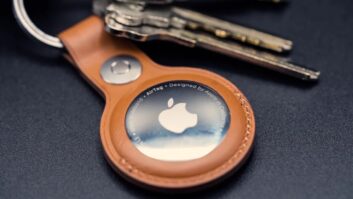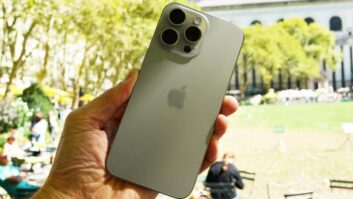
NEW YORK – Apple announced its entry into the home-automation market a year ago with the introduction of its HomeKit initiative, but only a handful of products have trickled into the market.
A handful of Lutron and Insteon products became available this month, and products from iHome and Ecobee will be available shortly.
The slow pace of introductions, however, hasn’t raised concerns by many analysts that HomeKit is destined to remain a niche player in the growing DIY home-automation market. Many still see Apple as expanding the home-automation market and speculate that the slow pace of introductions is attributable to Apple working with a new set of partners in a new market, technology development that could have been more challenging than originally thought, and possible distractions caused by the Apple Watch rollout.
HomeKit also doesn’t support a full range of product types, though with the fall launch of iOS 9, the company will extend HomeKit control to motorized windows and shades, sensors such as carbon monoxide and motion sensors, and home security systems. Smart plugs, lighting, thermostats and other products are currently supported.
“Are the announcements underwhelming?” asked Strategy Analytics analyst Bill Ablondi. “Yes, if you’re looking for immediate gratification of the ‘next big thing,’ but as Tim Cook has said many times, invest in Apple for the long term. Don’t expect immediate returns on Apple’s market initiatives. The smart-home opportunity is a long-term play, an evolution; not a revolution.”
As for product delays, he said, “I didn’t set my alarm clock to look for HomeKit products based around expectations circulated among industry observers. Apple wants to get it right, and they’re not in complete control of product development. Hence delays are to be expected. Better delayed than flawed.”
Ablondi still expects HomeKit to exert a major influence on the market. For one thing, “it will build consumer awareness for the benefits of remote monitoring, control and automation of ‘things’ in our homes,” he said. For another, “it has the potential to attract ‘best-in-class’ home devices, systems and services into its solar system. I say solar vs. ecosystem because, like a solar system influenced by the gravitational attraction of larger planets, Apple’s ‘gravitational attraction’ is significant.”
Apple is also “providing a framework for disparate devices to interoperate,” he said. “Interestingly, Apple is not choosing to design and oversee manufacture of HomeKit devices. It is enlisting leaders and/or innovators in their fields.”
For his part, NPD Group industry analyst Ben Arnold said, “I don’t take a whole lot away from that [slow rollout].” For Apple, “it’s a new space,” and the company is working “with a new set of partners and technology,” he said. Product development could have been more challenging than envisioned, or perhaps Apple wanted to offer vendors exclusive rollout periods for specific product types such as smart plugs, he said. The slow rollout belies Apple’s potential impact on the market, he said.
“If there is some appeal beyond the early-technology users, Apple is very well-situated to bring [home automation] beyond the early adopter” because of its advertising clout and large installed base of mobile-device users, Arnold said.
Although DIY home automation still appeals primarily to early adopters, “we’re beginning to see the products resonate beyond the affluent [who buy custom-installed systems] and the early adopters,” he noted.
Tom Kerber, home-control research director at Parks Associates, also sees strong HomeKit potential. “Apple HomeKit is disruptive because it provides a framework for app developers to engage in the smart home like never before. Unleashing the app-developer army on the smart home creates a formidable force in the market,” he said.
In addition, HomeKit provides app developers “with a seamless approach to integrating with Siri, which by itself will radically simplify and transform the user experience,” Kerber said.
Success, however, depends on manufacturer participation, he continued. “It appears that HomeKit has eliminated several potential barriers for manufacturers to participate in the program by defining rules for privacy that forbid developers from mining Home- Kit data for any purpose other than providing home control and specifically excluding the use of data for advertising.” Manufacturers are also attracted to “robust security measures, including bidirectional authentication and per-session encryption.” Nonetheless, “if the HomeKit framework constrains manufacturers from differentiating products through adding value-added services, or if the framework forces manufacturers to compete with app developers for monetizing data through new business models, participation will be limited.”
HomeKit Product Update
Ecobee: A HomeKit version of the company’s smart thermostat will be available for preorder June 23 and be in stores and online July 7.
Elgato: The Eve family of hub-less Bluetooth Smart accessories captures information about a home’s air quality, temperature, humidity, air pressure and energy consumption. They start shipping later this summer.
iDevices: The company is still working on Home- Kit-enabled products, including the Switch smart plug announced at International CES. It was due in the first half but is now planned for October.
iHome: A $39.99 smart plug was to become available for preorder June 15 at iHome.com, with retail availability expected in late June and throughout July.
Insteon: A certified home-automation hub at $149 is available exclusively through Amazon.com and Smarthome.com and due in other retail stores in early July.
Lutron: Two $229-suggested lighting starter kits (pictured) and a $200 HomeKit version of Lutron’s current Smart Bridge Pro are available.













